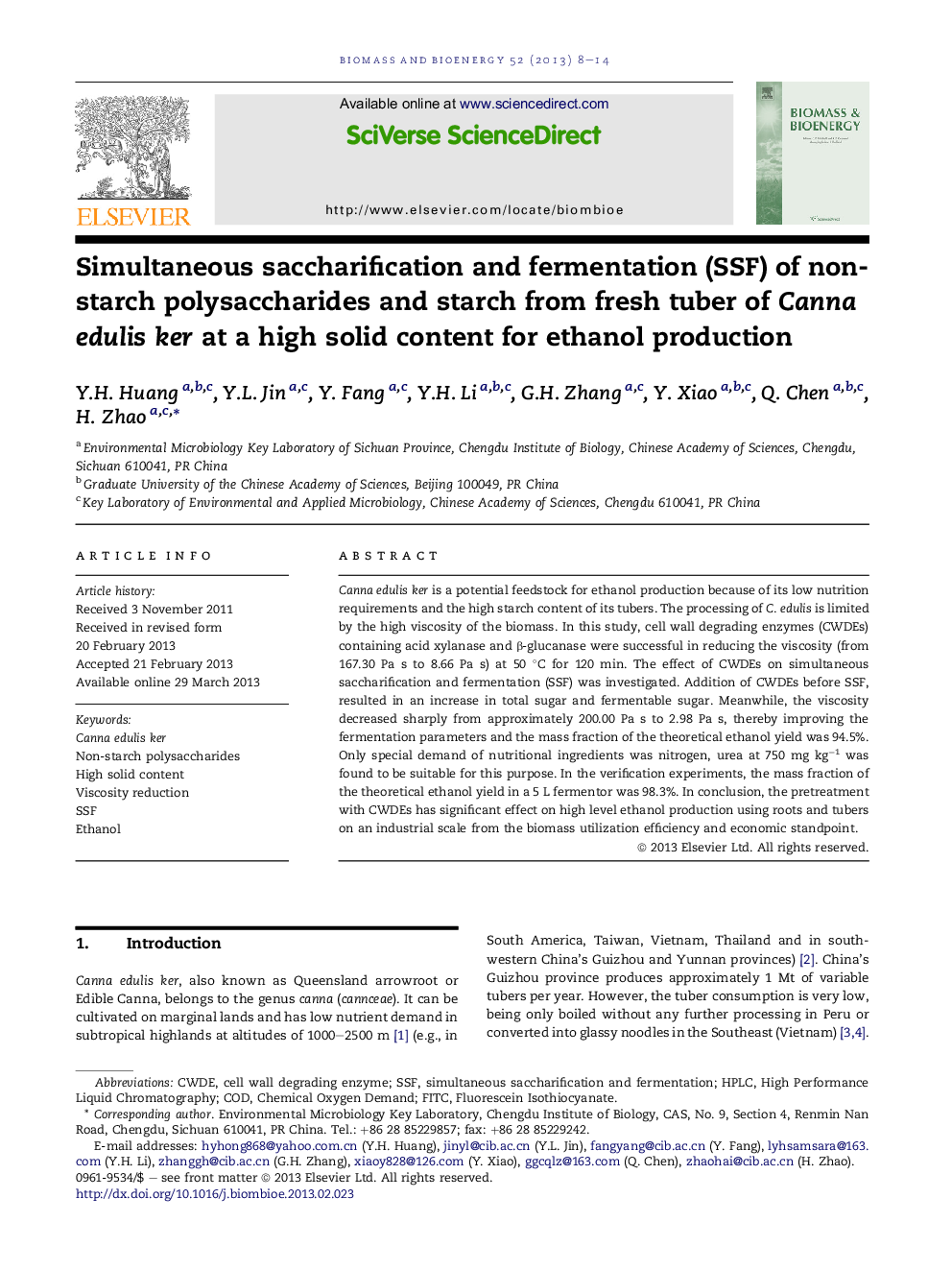| Article ID | Journal | Published Year | Pages | File Type |
|---|---|---|---|---|
| 677058 | Biomass and Bioenergy | 2013 | 7 Pages |
Canna edulis ker is a potential feedstock for ethanol production because of its low nutrition requirements and the high starch content of its tubers. The processing of C. edulis is limited by the high viscosity of the biomass. In this study, cell wall degrading enzymes (CWDEs) containing acid xylanase and β-glucanase were successful in reducing the viscosity (from 167.30 Pa s to 8.66 Pa s) at 50 °C for 120 min. The effect of CWDEs on simultaneous saccharification and fermentation (SSF) was investigated. Addition of CWDEs before SSF, resulted in an increase in total sugar and fermentable sugar. Meanwhile, the viscosity decreased sharply from approximately 200.00 Pa s to 2.98 Pa s, thereby improving the fermentation parameters and the mass fraction of the theoretical ethanol yield was 94.5%. Only special demand of nutritional ingredients was nitrogen, urea at 750 mg kg−1 was found to be suitable for this purpose. In the verification experiments, the mass fraction of the theoretical ethanol yield in a 5 L fermentor was 98.3%. In conclusion, the pretreatment with CWDEs has significant effect on high level ethanol production using roots and tubers on an industrial scale from the biomass utilization efficiency and economic standpoint.
► Cell-wall degrading enzymes (CWDEs) treatment improved fermentation parameters. ► Apart from 750 mg kg−1 urea, there were no special nutritional ingredient demands. ► The mass fraction of the theoretical ethanol yield in a 5 L fermentor was 98.28%.
